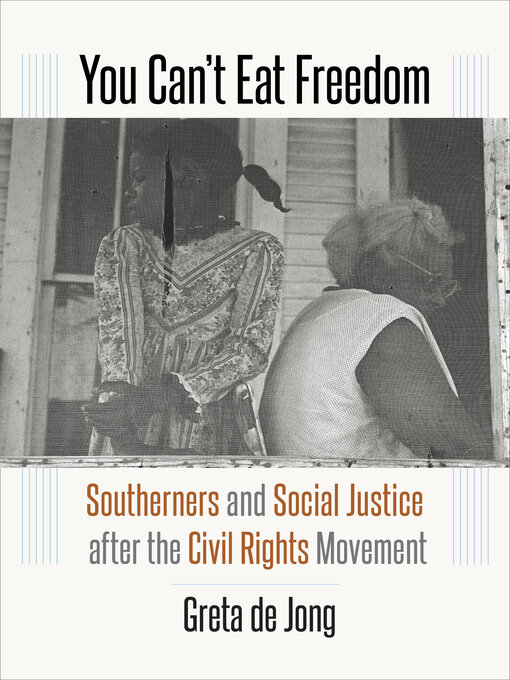You Can't Eat Freedom
Southerners and Social Justice after the Civil Rights Movement
Making clear the relationship between the civil rights movement and the War on Poverty, this history of rural organizing shows how responses to labor displacement in the South shaped the experiences of other Americans who were affected by mass layoffs in the late twentieth century, shedding light on a debate that continues to reverberate today.
-
Creators
-
Publisher
-
Release date
October 3, 2016 -
Formats
-
Kindle Book
-
OverDrive Read
- ISBN: 9781469629322
- File size: 4324 KB
-
EPUB ebook
- ISBN: 9781469629322
- File size: 4324 KB
-
-
Accessibility
Publisher statement (EPUB)
The publisher provides the following statement about the accessibility of the EPUB file supplied to OverDrive. Experiences may vary across reading systems. After borrowing the book, you may download the EPUB files to read in another reading system.
Ways Of Reading
Appearance of the text and page layout can be modified according to the capabilities of the reading system (font family and font size, spaces between paragraphs, sentences, words, and letters, as well as color of background and text).
Not all of the content will be readable as read aloud speech or dynamic braille.
Conformance
No information is available.
Navigation
Table of contents to all chapters of the text via links.
-
Languages
- English
Formats
- Kindle Book
- OverDrive Read
- EPUB ebook
subjects
Languages
- English
Loading
Why is availability limited?
×Availability can change throughout the month based on the library's budget. You can still place a hold on the title, and your hold will be automatically filled as soon as the title is available again.
The Kindle Book format for this title is not supported on:
×Read-along ebook
×The OverDrive Read format of this ebook has professional narration that plays while you read in your browser. Learn more here.
